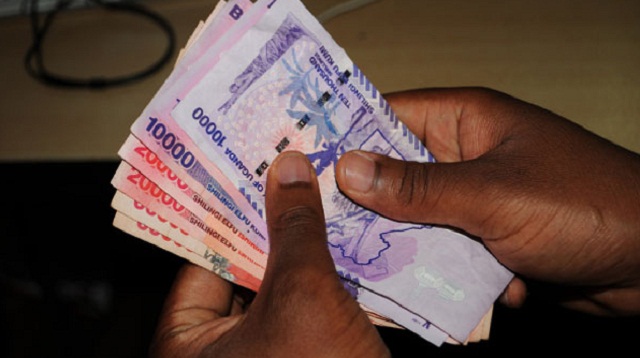
Poor money management skills blamed for the biting poverty
Kampala, Uganda | THE INDEPENDENT | Teaching financial literacy to adult populations has got a lift with the unveiling of an online platform that will make financial education more interesting.
SIMU Plus has partnered with Uganda Telecom for a roll-out of the M-Learning platform that teaches youths and adults a number of skills ranging from financial literacy to improving agricultural production.
The platform can be accessed by anyone with a simple mobile phone without internet connection, and gives voice and interactive lessons withtests and responses.
The new innovation was unveiled at the Masaka Micro Finance Development and Cooperative Trust Limited (MAMIDECOT) head offices in Nyendo, Masaka Municipality. MAMIDECOT is a cooperative organization that gives out development loans.
SIMU Plus Executive Director, Uzairu Nanseera,said one can subscribe for the m-Learning service by dialing 213 enabling them to access lessons through interactive voice messages.
A lesson takes four minutes with a provision of repeating the same lesson for free where a need for clarification arises until all 50 lessons that constitute the course are finished and a certificate is awarded. Each lesson costs Shs500 that is deducted from the airtime with no additional cost.
Nanseera said the design of the platform makes it convenient even for busy people as a learner has freedom to choose when to take lessons.
He said new packages about agriculture are to be availed soon driven by the need to rejuvenatethe region’s agricultural productivity.
“It’s universal as any kind of phone can subscribe for it and courses are in various local languages, this has attracted many users,” he said.
This development comes as multiple reports indicate that a big number of the local population live in poverty due to poor money management skills and below-par financial planning for business.
It also coincides with a number of programs that the government has put in place such as Bank of Uganda’s Financial Literacy Information Sharing Group (FLISG), which aims at bridging the financial literacy gap, especially on the part of borrowers.
Last July, Uganda Revenue Authority and the ministry of Gender, Labour and Social Development held a financial literacy seminar for 18 to 30-year-olds as part of the government’s ‘Skilling Uganda’ initiative.
Cissy Nalugooti, the first learner to complete the financial literacy course under this platform said the new course has boosted her financial management skills and savings. She encourages all her fellow members to subscribe to SIMU+ to enjoy the same benefits.
Masaka Municipality Mayor, Godfrey Kayemba Afaayo, hailed SIMU+ for the innovation saying it would enable people utilize time that would have been wasted on social media platforms to grow wealth.
He called for urgency in operationalizing the agricultural package as technical information about it will be relevant to people of greater Masaka to resume this activity on which steady development of this region rested.
Juliet Mayanja, the Masaka District Assistant Chief Administrative Officer, lauded SIMU Plus’ innovation, calling for a partnership with district technical teams to teach proper financial management skills to Uganda Women Entrepreneurship Fund and the Youth Livelihood Program.
She said the two groups are facing challenges with making returns due to lack of skills in financial management.
With its founder, Frank Bierens, Simu Plus disrupts and democratises adult education and changes the way young adults in Sub Saharan Africa gain skills and educate themselves, including the illiterates and semi-literates.
Courses are voice based and accessible by all mobile phones, including the most basic ones. Lessons are offered in multiple local languages with interactive voice response ‐interaction for engagement and progress tracking, and are aimed at increasing people’s chances of getting a job, improve farming outcomes, and making money in the informal sector and health.
 The Independent Uganda: You get the Truth we Pay the Price
The Independent Uganda: You get the Truth we Pay the Price



